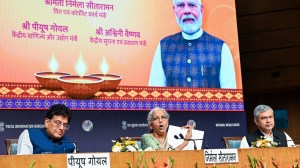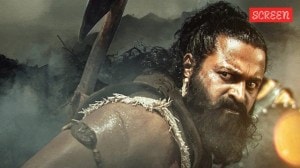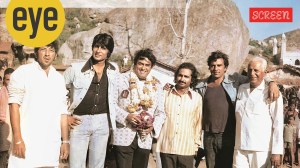England, Windies here for World Cup: hold the breath, it’s kabaddi
The Iranians may go ‘‘jhoo, jhoo’’ and the Indians ‘‘hu tu tu’’, but it’s all in the name of th...

The Iranians may go ‘‘jhoo, jhoo’’ and the Indians ‘‘hu tu tu’’, but it’s all in the name of the same game—kabaddi. Starting tomorrow, 12 teams—including the UK, West Indies, Canada, Japan and Korea—will compete for the first Kabaddi World Cup, to be held at a dusty sports ground in central Mumbai.
The prize money may not be much—just Rs 2 lakh, but the teams are raring to go. All the sponsors had to offer was airfare and accommodation, besides a competitive playing field.
While kabaddi may have neither a world federation or Olympic recognition, all the competing nations have played the game, in some form or another, for decades. Yet they look to India—where the game originated—as the natural champions.
‘‘Bangladesh and Nepal have been carved out of the Indian subcontinent. So they have a history of kabaddi,’’ says Jaya Shetty, general secretary of the South Kanara Sports Club which is organising the tournament to mark its golden jubilee year.
As for the UK, West Indies, Canada and to a small extent even Germany, they were introduced to the sport by migrant Indians decades ago. Japan and Korea were drafted in too, via the Asian Games, while Malaysia hosted the Asian Kabaddi championships in 2003, where Iran emerged the champions.
‘‘The expenses incurred on the championship totals Rs 1 crore, of which Rs 50 lakh was spent on the airfare only,’’ says Shetty. ‘‘Even the US showed interest, but it was too late.’’ While there is no title sponsor, a host of corporates have contributed.
‘‘Our traditional sport called jhoo is almost a twin of kabaddi,’’ says Mohammed Ali Pour, president of the Iran Kabaddi Association. His team is one of the top contenders for the trophy, he says, because ‘‘we’ve never had any trouble mastering kabaddi’s finer points.’’ The players only had to make minor adjustments to their techniques and remember to chant kabaddi-kabaddi instead of jhoo-jhoo.
The Koreans have had it just as easy. ‘‘We’ve played cattlefish for as long as we can remember,’’ says Yoon Yeong-Hak, secretary general of the Korean Kabaddi Association. ‘‘My trips to India in 2001, when I visited Bhopal and Mumbai, were enough to take in the finer nuances of kabaddi.’’
Following the Busan Asian Games, Yeong-Hak’s efforts to popularise the game has led to the formation of six kabaddi teams in Busan, including two all-women teams.
Sharing Yeong-Hak’s passion is Ashok Das, manager of the England team. ‘‘We’ve even hosted an international tournament in Birmingham in 1994 in which teams from India and Pakistan participated,’’ he informs. ‘‘The problem is that kabaddi in England is mostly played by people of Asian origin. My job will be done when we have an all-English team.’’
According to him, UK’s traditional sport—British bulldog—is quite similar to kabaddi. The rules are slightly differnt though.
‘‘Jahan sardar chale jayen, kabaddi apne aap wahan pahunch jaati hai (wherever a sardar goes, kabaddi reaches on its own),’’ says Kartar Singh, manager of the Canadian team. ‘‘We have a strong base of circle kabaddi. It’s been there for the past decade-and-a-half, and now we have almost 20-25 clubs competing in tournaments that are held regularly,’’ he adds.
Janardan Singh Gehlot, president of the Asian Amateur Kabaddi Federation, says the aim of the Mumbai tournament is to put this ancient sport on the global map. He hopes his position as vice-president of the Indian Olympic Association will help achieve this goal, ‘‘first at the Commonwealth Games which we’re hosting in 2010, and eventually at the Olympics.’’



- 01
- 02
- 03
- 04
- 05




























